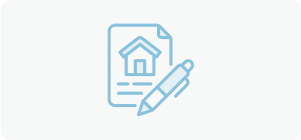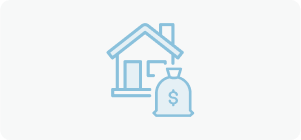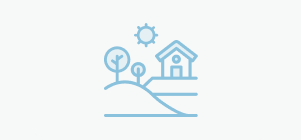




Cash-out refinance loans are new mortgages for more than what you currently owe on your mortgage. When you get a cash-out refinance, it replaces your current mortgage with a larger loan. At closing, you will receive the difference between your new mortgage and what you owe on your old one as a lump-sum payment. The money you receive from a cash-out refinance can be used for many purposes, including:
Three important caveats about cash-out refinancing include:
Cash-out refinance loans work similarly to other mortgage loans in that you look for a lender, complete an application, and go through underwriting to qualify based on your income, assets, and credit.
First, since a cash-out refinance mortgage is larger than what you currently owe on your mortgage, the lender will confirm your ability to afford a higher monthly mortgage payment and a larger mortgage.
Second, your cash-out refinance loan amount is an estimate until you obtain an appraisal. If your appraisal ends up being less than what you expected, you might not qualify to borrow as much money as you anticipated. Before applying, you can take a few simple, low-cost steps to increase your home’s value, including:
After the appraisal comes back, your lender will then subtract your current mortgage balance from the refinance loan amount and subtract the closing costs from the difference. At closing, your old mortgage will be paid off, and you will receive the difference as a lump sum. Your new mortgage will be secured by your home.
Cash-out refinance mortgages are available for most loan programs, including conventional cash-out refinance loans, jumbo cash-out refinances, FHA cash-out refinance loans, and VA cash-out refinance loans.
A conventional cash-out refinance typically allows you to take out a maximum of 80% of your home’s appraised value for a home that is your principal residence under Fannie Mae’s eligibility matrix. For example, here is how a conventional cash-out refi might work:
| Home Loan Evaluation | $ |
|---|---|
| Appraised Value | $500,000 |
| Maximum Loan Amount (80% LTV) | $400,000 |
| Amount Currently Owed | $320,000 |
| Maximum Cash-Out Amount | $80,000 |
As you can see from the example above, the homeowner has a total equity of $180,000 in their home (appraised value minus the amount currently owed). However, since the maximum loan amount is set at 80% of the appraised value or $400,000. When you subtract the current mortgage amount of $320,000, that leaves a maximum cash-out amount of $80,000.
Lenders limit the maximum loan amount to 80% of a home’s appraised value to protect themselves in case of default. If you have a second mortgage, its balance will also be subtracted.
Like your original mortgage, a lender for a conventional cash-out refinance mortgage will take a look at your debt-to-income ratio to make sure you can afford your payments. This is your monthly debt payments divided by your monthly income. The lower your DTI is, the better. Lenders have varying standards for DTIs, but most want to see that you have a DTI of no more than 45%-50%.
| Amount | |
|---|---|
| Monthly Income | $10,000 |
| Car Payment | $ 750 |
| Student Loan Payment | $ 1,100 |
| Current DTI without mortgage | = 18.5% |
| (Car Payment + Student Loan Payment) / Monthly Income | ($1,850 / $10,000) |
| Maximum DTI w/ mortgage | 45% |
| Max debt payments (Max DTI * Monthly Income) | ($4,500) |
| Total Max mortgage payment (Max debt payments – Current Debt Payments) | $2,650 |
Conventional cash-out refinance mortgage lenders typically require minimum credit scores of at least 620.
However, some lenders might want a higher score. If you have a minimum 620 score, your lender also might require you to leave more equity in your home than 20% to qualify. For the most favorable interest rates and loan terms, it’s best if you have a score above 700.
Unlike FHA or VA cash-out refinance mortgages, conventional cash-out refinance loans allow you to take out equity from a second home or investment property. Cash-out refinance loans through the FHA or VA only are available for principal residences.
A conventional cash-out refinance mortgage must fall within the conforming loan limits. In 2024, the conforming loan limit is $766,550 in most counties, but it is higher in designated high-cost-of-living areas.
According to Fannie Mae, at least one borrower should have been on the title for six months before applying for a cash-out refinance.
Another option is an FHA cash-out refinance, which is a loan guaranteed by the Federal Housing Administration (FHA). Since the FHA guarantees the loan, it reduces the risk your lender faces. This means that you might qualify for an FHA cash-out refinance with a lower credit score and receive a lower rate of interest.
However, you will have to pay mortgage insurance premiums for at least 11 years when you get an FHA cash-out refinance.
You aren’t required to have a current FHA mortgage to obtain an FHA cash-out refinance loan and can apply even if you currently have a conventional mortgage or own your home outright.
Like conventional mortgages, the FHA sets a maximum LTV for FHA cash-out refinance mortgages of 80% of your home’s appraised value. To qualify, you must have owned your home for at least 12 months.
Similar to conventional cash-out refinance loans, FHA-approved lenders want to see that you can afford to make your mortgage payments by having a relatively low DTI. Generally, lenders will want to see a maximum DTI of 43% to 50%.
The FHA only requires a minimum credit score of 500 to qualify for a cash-out refinance mortgage. However, most lenders will not accept you if your score is that low. Instead, many set their minimum scores at 580 to 620. Having a higher score will allow you to obtain better terms and rates.
FHA cash-out refinance loans are only available for your primary residence.
To qualify for an FHA cash-out refinance, you must have owned your home for a minimum of 12 months before applying.
A cash-out refinance loan through the FHA must fall within the FHA’s loan limits. In 2024, the FHA loan limit for a single-family home is $498,257.
If you are a military service member or veteran, you might qualify for a VA cash-out refinance loan. Like an FHA cash-out refinance, a VA cash-out refinance is guaranteed by a federal governmental agency. This reduces the risk lenders face and allows people to qualify with lower credit scores. VA cash-out refinance loans also offer some other favorable terms.
VA cash-out refinance loans allow borrowers to access more of their equity than conventional or FHA cash-out refinance loans. Instead of a maximum LTV of 80%, VA cash-out refinance mortgages allow borrowers to obtain cash-out refinance mortgages of a maximum of 90% of the appraised value of their homes.
VA-approved lenders want to see that you have a relatively low DTI to confirm you can afford to make your payments. Most lenders will want your DTI to be no more than 41%.
The VA doesn’t set a minimum credit score for borrowers to qualify for a VA cash-out refinance loan. However, lenders can set minimum credit score requirements themselves. You can expect to need at least a 580 credit score or higher to be approved for a VA cash-out refi.
For a VA cash-out refinance, you can apply as long as you have owned your home for 210 days or longer.
The VA doesn’t set loan limits for VA loans, including VA cash-out refinance loans. However, lenders typically set the maximum amounts they are willing to approve.
You can expect to pay a higher rate of interest for a cash-out refinance than a regular mortgage. This is because lenders view cash-out refinance loans as carrying more risk since you will be turning your home’s equity into debt.
There are a few things you can do to obtain a better rate, including the following:
The rates you might expect to receive for a cash-out refinance are greatly impacted by your credit score. To get the best interest rates for a conventional cash-out refinance loan, having a credit score of 780 or above will help.
If your credit score is lower, work to increase it by paying off your credit cards, paying all of your bills on time every month, and avoiding opening new credit accounts. Taking these steps can increase your credit score and potentially save you thousands of dollars in interest over your new loan’s life.
If you want to get a cash-out refinance to renovate your home, it might seem silly to make repairs before you apply. However, even minor improvements could result in a higher appraised value, a lower LTV ratio, and a better interest rate. At a minimum, take a look at your home with a critical eye.
Clean up your landscaping and your home’s exterior to improve its curb appeal. Thoroughly clean the interior, and declutter everything. Making your home look its best before the appraisal can help. Minor repairs, including painting, fixing small cracks in walls, stopping leaky faucets, and others can also increase your home’s appraised value.
If you have a higher LTV ratio, you will also have a higher rate of interest. Your LTV is how much you borrow compared to your home’s value. While you might be eligible to take out a maximum of 80%, it’s best to aim lower.
You can lower your LTV ratio by increasing the size of your down payment. You might be able to do this by getting a gift from your family member or by applying for downpayment assistance.
If you want to tap into your home’s equity through a cash-out refinance loan in Utah, you should talk to the experienced mortgage professionals at City Creek Mortgage. We can discuss your situation and goals and help you shop around for the best lenders, rates, and terms. Call us today to schedule an appointment at (801) 501-7950.



